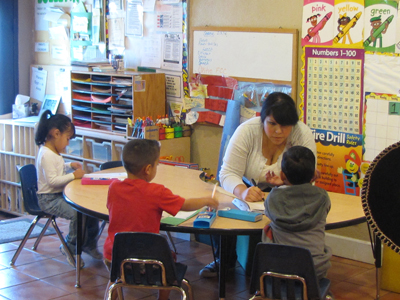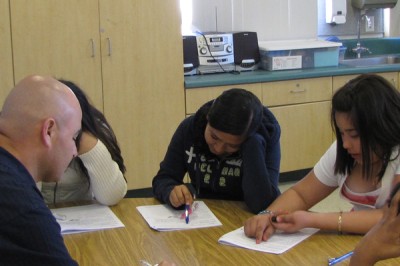More, better early education could help close California’s achievement gap

Grace Castro's daughter, Claudine, teachers a group of students in the foyer of the family's home. (Photo by Sarah Garland)
In California, the state with the largest population of Hispanic students in the country, the achievement gap starts early—long before children enter school.
Hispanic children are much less likely to enroll in preschool than white or black children, and begin kindergarten more than half a year behind their white counterparts. First-generation immigrant students, many who speak only
California has one of nation’s highest gaps in Hispanic-white reading proficiency

At an elementary school in Soledad, in the Salinas Valley, a group of students that have performed moderately on state tests practice reading skills with an intervention teacher. (Photo by Sarah Garland)
SOLEDAD, Calif.–On a cool winter morning Nicole Miller circulated through her fourth-grade classroom in this small town in the Salinas Valley, quizzing students on material they’d likely see on state tests in the spring.
“How do you know ‘hit the lights’ is
English learners far behind under English-only methods

Patty Sanchez reads a storybook in Spanish to her classroom of kindergartners at Geddes Elementary School in Baldwin Park, where English learners have closed the gap with native speakers. (Photo by Sarah Garland)
BALDWIN PARK, Calif.–The end of the school day in Patty Sanchez’s kindergarten class at Geddes Elementary School is not so different from other kindergarten classes around the state. Children gather on a rug as Sanchez
